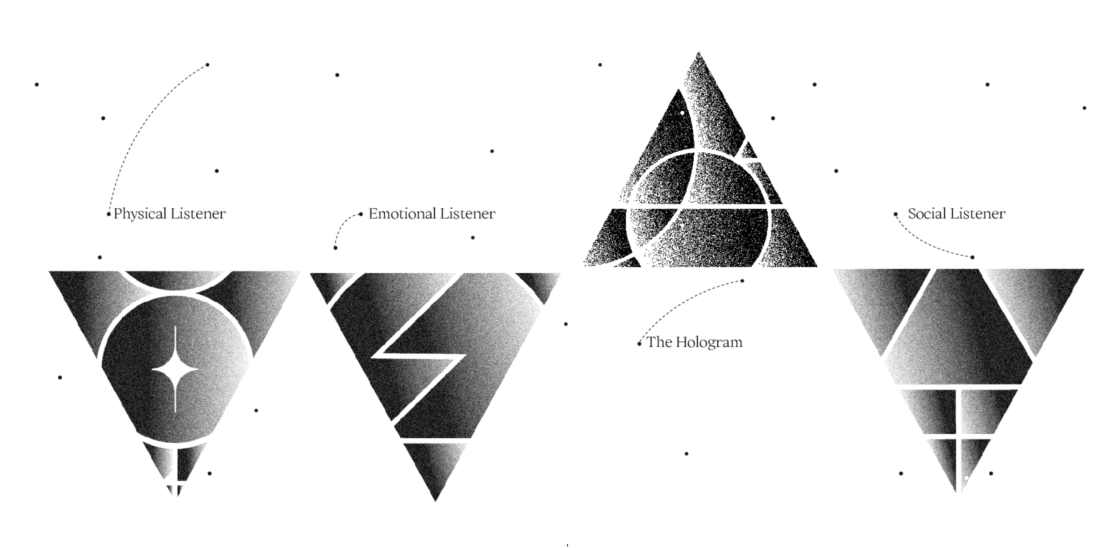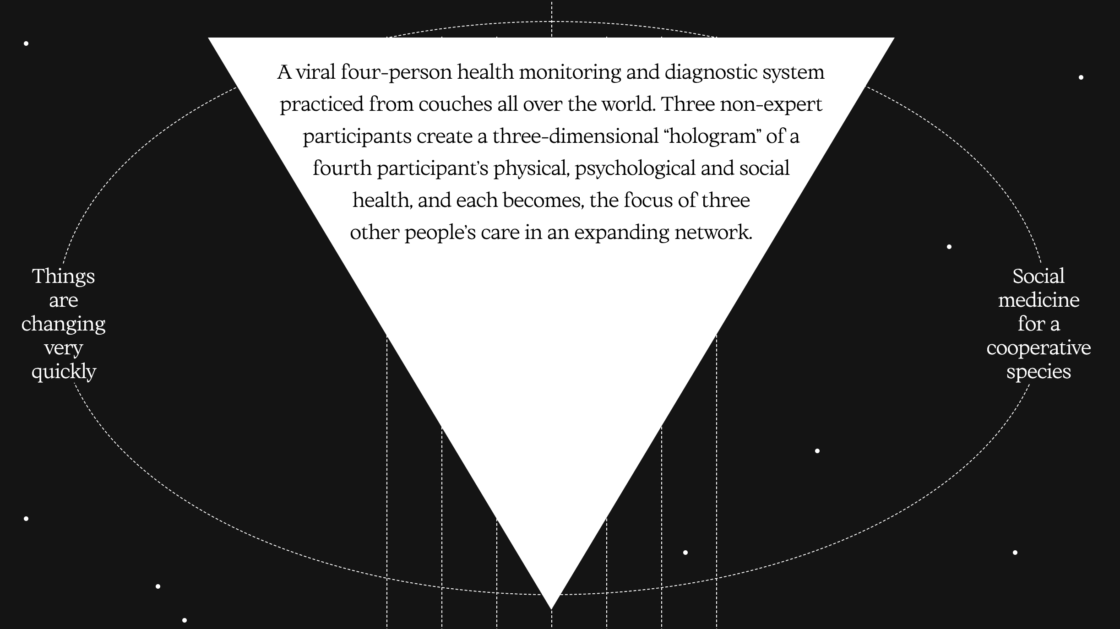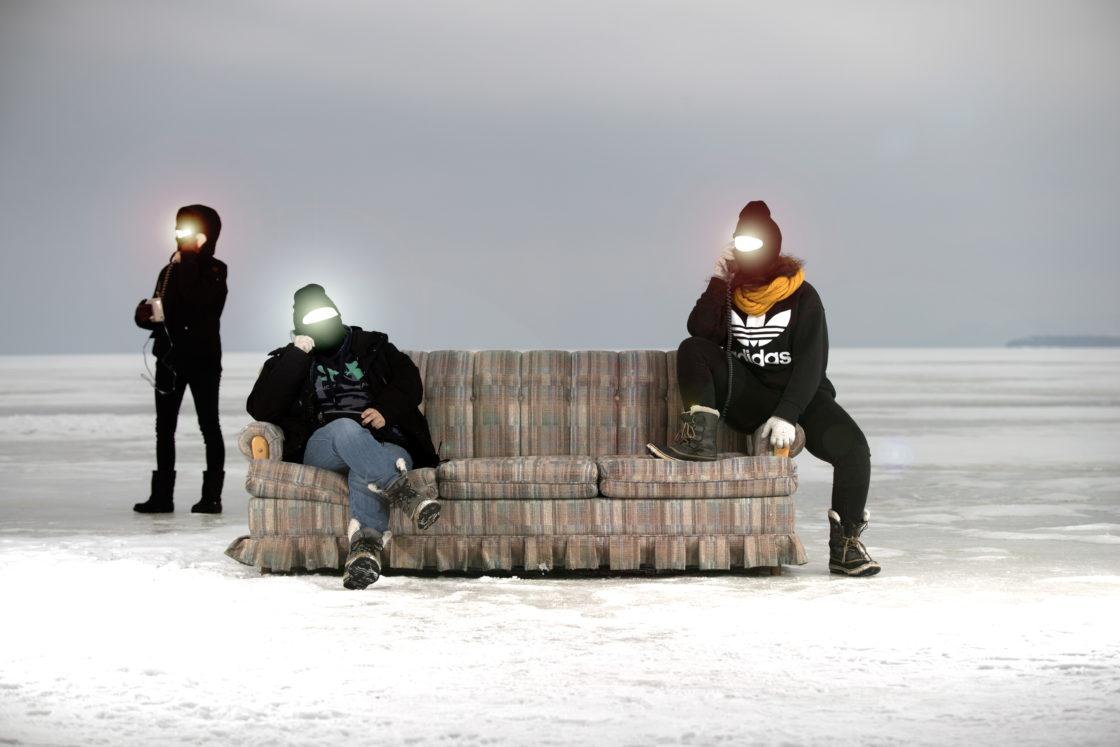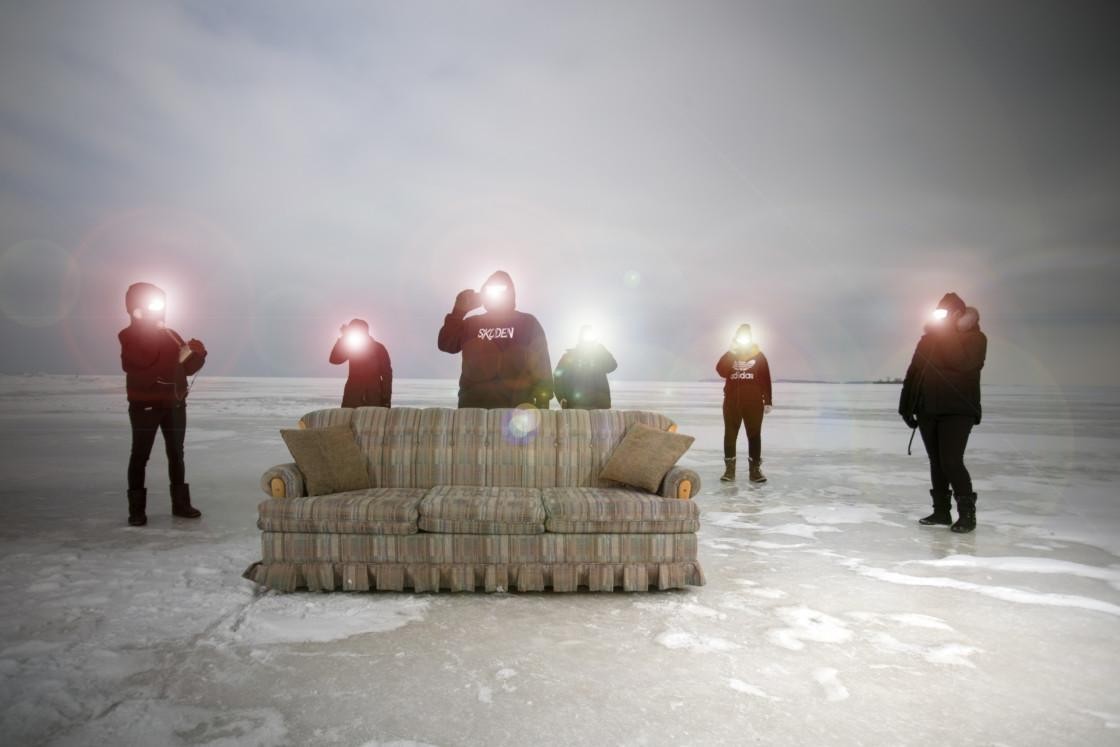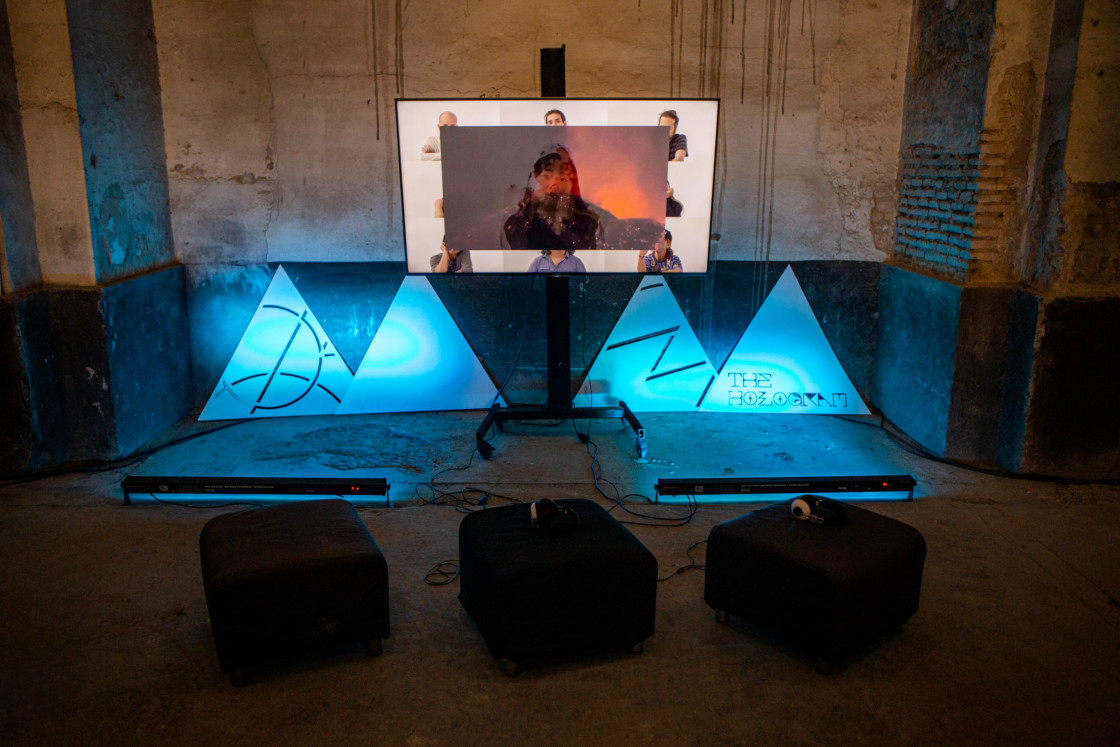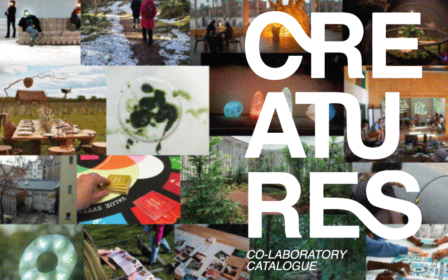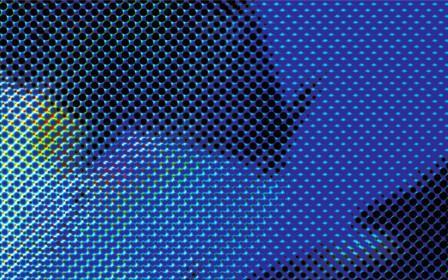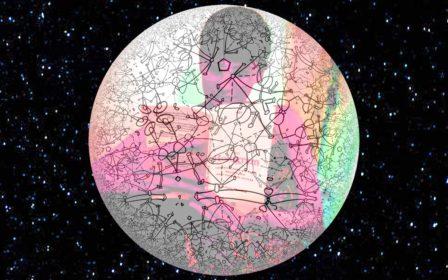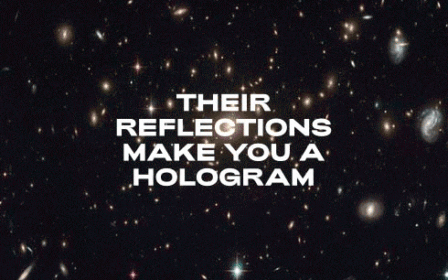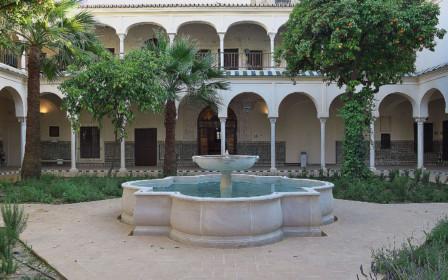The Hologram is a mythoreal viral distribution system for non-expert healthcare, practiced from couches around the world. The premise is simple: three people – the ‘Triangle’ – meet on a regular basis, digitally or in person, to focus on the physical, mental and social health of a fourth – the ‘Hologram’. The Hologram, in turn, teaches these listeners how to give and also receive care. When they are ready, the Hologram will support them to each set up their own triangle, and so the system expands.
This social technology is based on the experimental care models developed in the Social Solidarity Clinics in Greece during the height of the financial and migration crisis. The result of The Hologram process is the construction of a robust multidimensional health network, collectively-oriented social practices, and trust that can outlive capitalism.
The Hologram’s protocol ensures that all caretakers are cared for, and regards properly supporting someone else’s well-being as therapeutic in itself. As the racist, capitalist and patriarchal world crumbles around us, participants are invited to design long-lasting systems for support and solidarity that can ensure that our species can outlast the ongoing social, economic and planetary emergencies.
The project aims to enact a functional system for non-expert healthcare based on mutualistic support and solidarity that works towards a speculative post-capitalist future where peer cooperation is an essential value. It aims to foster people’s personal transformations within small groups through a peer-to-peer healthcare system and enable the system’s viral proliferation in broader social and geographical contexts.
The Hologram Course
Within the CreaTures context, The Hologram started with the course We must begin again: Asking for help as a new world, in which people from all over the world were invited to meet online to study and practice what it means to ask for help. The course was run in Autumn 2020, following an incubation period and exploratory workshop organised at Furtherfield’s space, as part of Cassie Thornton’s artist residency.
“We believe that destruction is making space for new beginnings and that we have no choice but to begin again. We see asking for help as a way of coming into a new world with humility, curiosity and interdependence with all beings. We want to work together with you to remind ourselves what we have been forced to forget: how to be a cooperative, interdependent species. In this project, the person who articulates their needs and asks for support can take us to a whole new world.”
– from The Hologram course invitation
In the series of six online course sessions (Sept-October 2020), 26 participants were guided through a process to remember together why and how to ask for support, and how to ensure that our supporters are supported. Together, they experimented with how to organize and value the support they need to survive and thrive in the coming new world: they practiced and discussed the social skills, values, and priorities that are central to The Hologram’s model for collective peer-to-peer healthcare.
- Each session focused on a particular topic:
- Trust and questions of Bad Support
- Atrophy of the Sharing Muscle
- Failienation
- Learning to Trust Ourselves Again
- Wishes and Time
Participants also practiced Social Presencing Theatre and experimented with their first Hologram meeting. The last session was dedicated to building a Hologram Community of Practice. Each person left the course empowered to assemble and participate in their own Hologram group.
A CreaTures member joined the course as an embedded researcher and shared autoethnographic logs of their experience throughout, giving The Hologram facilitators an invaluable participants’ perspective. This provided insights into the complex tensions and interplay between personal/individual and shared/collective experiences across the six weeks. Their reflections on the appeal (or otherwise) of certain elements of the experimental practices employed also informed the development of future courses.
The Hologram team offers several courses every year, each shaped to fit common collective needs. Outside of the CreaTures scope, multiple courses took place including, for instance, a series of courses designed especially for healthcare workers or people who identify as men.
The Hologram LARP – We were made for this // 2050 Fugitive Planning
From inside the stillness of global lockdown, The Hologram’s viral healthcare system was used as a parafictional framework (where fiction is presented as fact) of radical planning “for the post-pandemic futures we wanted”. Through participation in this Live Action Role-Play (LARP) over two online events, twelve people made contact with who they would become, individually and collectively, by 2050.
The LARP had two related goals, offering participants an opportunity to:
“ make contact with who we want to become, individually and collectively, by 2050 [and to] see yourself as a powerful and supported being who will survive and thrive the coming emergencies and crises that await us…”.
– Cassie Thornton (2021)
The LARP was intended to provide the next level of learning and transformation through social holography. In this immersive game, participants played characters based on the most powerful and well-supported version of themselves. They time-travelled 30 years in three weeks to enact their survival and thriving through multiple emergencies and crises. Human systems collapsed and reformed, in the wake of social upheavals borne of entrenched colonialism, racism and environmental crises. Capitalism ended.
The Hologram Community of Practice and Workbook
The Hologram Community of Practice meetings have been organised on a monthly basis via a Telegram channel and run online by community members. Connected to the community is a series of online, facilitated, two hour-long sessions called Minimum Viable Holograms (MVH). In these sessions, one of The Hologram peer-facilitators walks newcomers through the basic ideas of the project to explain how each part of the social holography process works, and how to have transformative and supportive conversations.
Eleven MVH facilitators have been trained so far to support people in their first Hologram session. The community has been collaborating on a full programme of developments and aims to sustain the practice and network beyond 2023, when Cassie Thornton plans to step down as the creative lead of the project. A summary video provides a glimpse into the MVH sessions:
The Hologram Workbook (Starter Kit for Anti-Capitalist Futures) was created to provide easy answers to the question: What is The Hologram and how do you use it? This short illustrated manual (translated into 5 different languages) walks incomers through the first steps of starting their Hologram group and is intended as an accompaniment to the support received from another practitioner who is familiar with The Hologram protocol.
The Hologram Film
The Hologram film directed by Thornton and produced and edited by Jonathan Lee, attempts to model the Hologram practice and its use both online and offline. It also reveals the radical proposal underneath the practice, which is that many people can simultaneously create an expanding network of contributors who are healthy and stable enough to survive and thrive through the end of capitalism, and to make new ways of organising human cooperation with what is found in the rubble. The film consists of a simulation of the Hologram protocol performed by people who are a part of the large community of practitioners using The Hologram practice in their life.
The Hologram film was exhibited at the CreaTures Festival in Seville, Spain (June – July 2022) and at an exhibition, workshop and video launch event at the Cummings Center for the History of Psychology as part of the Cleveland Triennial for Contemporary Art (July 2022).
In the nine months following The Hologram course, numerous events took place. Community members ran two more Hologram courses, eleven people set up their own Holograms, while 35 people joined The Hologram Community of Practice on Telegram and 36 people joined a new, monthly Community of Practice meeting. 40 people also signed-up and participated in Minimum Viable Holograms (MVH) taster sessions that enable people to create their own care clusters. These MVH programmes were developed with a specific focus on diversity. The Hologram also received significant additional funding and support through other social and cultural organisations. A website and community forum were created and populated by networks of The Hologram participants.
